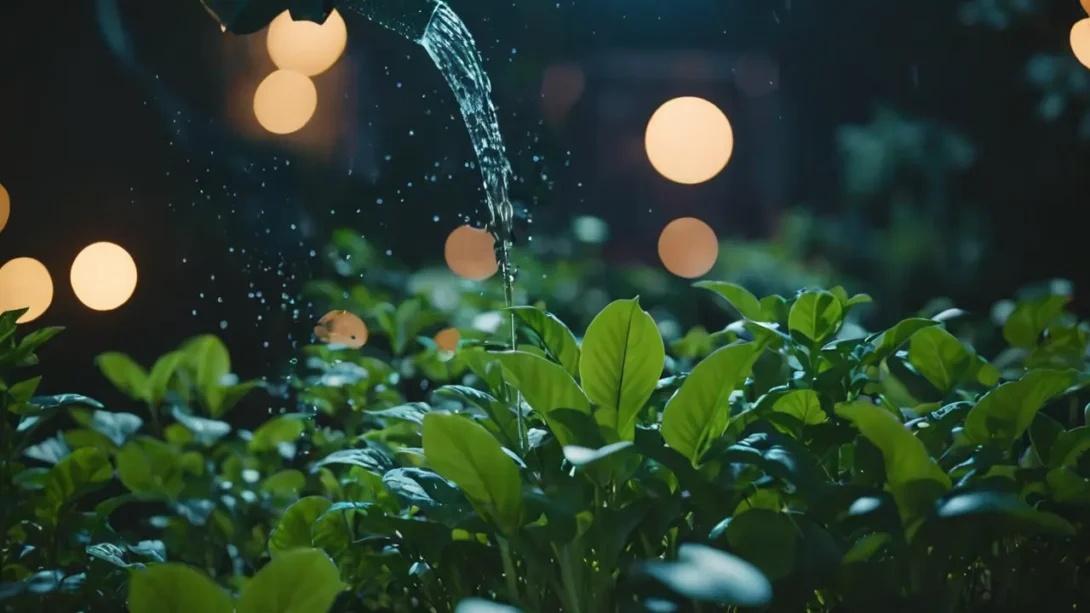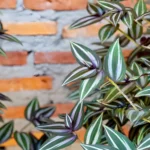Watering plants is a fundamental aspect of gardening that seems straightforward but is laden with nuances that can significantly impact plant health and garden vitality. A common question among gardeners, both novice and experienced, revolves around the optimal time of day for watering plants. While morning watering has its advocates, others wonder if watering at night could be beneficial, given the cooler temperatures and reduced risk of evaporation. This article delves into the debate, aiming to shed light on the best practices for hydrating your garden efficiently and effectively.
Plant Water Needs
To navigate the complexities of when to water plants, it’s essential to first understand how plants use water. Water is crucial for photosynthesis, the process by which plants convert light into energy, and it plays a key role in nutrient transport and temperature regulation. However, plants’ water needs vary widely based on factors such as climate, soil type, and species. For instance, succulents and cacti require far less water than vegetable crops or flowering plants. Recognizing these needs is the first step in determining not just how much water your plants require, but also the most opportune time to provide it.
Pros of Watering at Night
One of the main advantages of watering plants at night is the significant reduction in water loss due to evaporation. With the sun set and temperatures cooler, water has a chance to seep deeper into the soil, reaching the roots more effectively than it might during the heat of the day. This can be especially beneficial during hot spells when the ground can become parched and hard, making it difficult for water to penetrate.
Another point in favor of nighttime watering is the potential for less stress on plants. During the day, especially under intense sunlight, plants can experience transpiration, where they lose water through their leaves. By watering at night, you might mitigate this stress, allowing plants to better utilize the water they receive.
Cons of Watering at Night
While watering at night might seem advantageous due to reduced evaporation and potential for deeper soil penetration, it’s crucial to consider the significant downsides. The primary concern with nighttime watering is the increased risk of fungal diseases and pests. Many fungal pathogens thrive in moist conditions, and without the sun to help dry out the foliage, water that lingers on leaves overnight can create an ideal environment for these diseases to take hold. Plants like roses, tomatoes, and squash that are susceptible to powdery mildew and other fungal diseases might suffer more under night watering practices.
Additionally, cooler nighttime temperatures mean slower water absorption by the plants. This slower uptake can lead to waterlogging around the roots, further exacerbating the risk of root rot and other diseases that thrive in overly moist soil conditions. This inefficient use of water not only puts plant health at risk but can also lead to water waste, as not all the water applied is effectively utilized by the plant.
Best Practices for Watering Plants
Given the pros and cons of night watering, it’s evident that the best watering practices are those tailored to the specific needs of the plants and the local climate conditions. Here are some general recommendations for effective watering:
- Monitor Soil Moisture: Before watering, check the soil moisture levels to ensure that water is indeed needed. Overwatering can be just as harmful as under-watering.
- Use Mulch: Applying a layer of mulch around plants can help retain soil moisture, reduce weed growth, and prevent disease by keeping water off the plant leaves.
- Consider Drip Irrigation: Drip irrigation systems deliver water directly to the soil at the base of the plant, minimizing evaporation and reducing the risk of leaf wetness and fungal diseases.
Alternatives to Night Watering
Given the potential issues associated with watering at night, many experts recommend early morning watering as a more effective alternative. Watering in the early hours allows plants to absorb moisture before the heat of the day sets in, reducing evaporation while ensuring the foliage has time to dry out, thus minimizing disease risk. Adapting watering schedules to the seasons and current weather conditions is also crucial, as plants’ water needs can vary significantly throughout the year.
Conclusion
Deciding whether to water plants at night requires a careful consideration of various factors, including plant species, local climate, and the potential for disease. While there are some benefits to nighttime watering, such as reduced evaporation, the risks associated with fungal diseases and inefficient water use often outweigh these advantages. Adopting a more nuanced approach, such as watering in the early morning and employing methods like drip irrigation, can offer a more balanced and effective solution. By understanding the specific needs of their garden and staying informed about best practices, gardeners can ensure their plants thrive while conserving water and protecting against disease.




